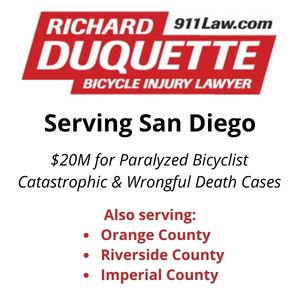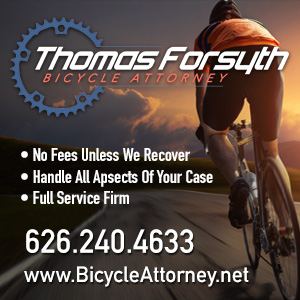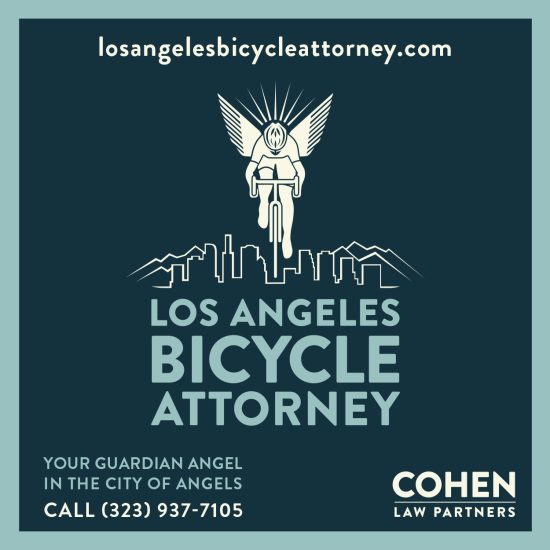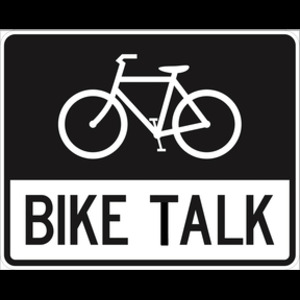
Yesterday morning, a reporter from outside of LA emailed me with a single, very simple question.
But the answer was just the opposite.
She wanted to why Los Angeles continues to be one of the nation’s deadliest cities for bicyclists.
This is how I responded.
………
That’s a complicated question.
There are a number of factors involved, but let’s start with the most obvious. Los Angeles is the second largest city in the US, so ignoring any other factors, we could be expected to have one of the highest traffic fatality rates.
We also have roughly 6,500 miles of surface streets, the most in the US. And due to the city’s mistaken obsession with LOS (Level of Service) until recent years, virtually all of those streets have been over-engineered to move as many vehicles as fast as possible, with little or no regard for safety.
That’s complicated by California’s deadly 85th Percentile Law, which allows drivers to set speed limits with their right foot. So you have streets that have been designed like highways, despite their original speed limits.
As a result, drivers naturally speed, which results in a continual raising of the speed limit until some LA streets have speed limits of 50 mph or more. And on those that don’t, drivers routinely exceed the limit by 10 to 15 mph — and complain in the rare instances that they get pulled over, because everyone else is doing it.
Add to that the smallest police force of any major city, resulting in just a few hundred officers patrolling the streets at any given time, most of whom are too busy dealing with major crimes to bother pulling anyone over for an illegal U-turn or weaving in and out of traffic. And until recently, police couldn’t enforce speed limits on most of the city’s streets, because LA failed to conduct the speed surveys required by the 85th Percentile law.
So is it any wonder that LA has what may be world’s most entitled drivers, who seem to feel they have a God-given right to do anything they want, with little or no fear of consequences?
Then there’s the lack of safe bicycling infrastructure in the city. While the city made great gains under the previous mayor, who committed to building 40 miles of bike lanes a year, that has trickled to a crawl under the current administration, resulting in less than 10 lanes miles a year. We have just a handful of parking protected bike lanes, no curb-protected lanes — the first is expected to open this summer on South Figueroa — and a few of what are questionably called protected lanes, guarded only by thin plastic flex posts, which are easy to drive over with no damage to your car.
To complicate matters, there is nothing even resembling a bikeway network in Los Angeles. With the exception of Downtown LA, it is virtually impossible to plan a safe route from one part of the city to another. Bike lanes start and stop at random, and usually don’t connect to anything, forcing riders to contend with high speed traffic and aggressive drivers.
As a result, a disproportionate number of LA riders use sidewalks instead of riding in the street, putting them at significant risk when they have to cross a side street or driveway. In addition, LA has a large immigrant population, many of whom ride bikes as their only form of transportation. And many of whom learned to ride against traffic in their home countries, and continue the practice here; in some neighborhoods, salmon cyclists make up most, if not all, of the bicycling victims according to the LAPD.
Do I even need to mention that there is no bicycle eduction in most California cities? Some of the local advocacy groups offer adult bike education, but that reaches only a handful of people each year. And usually not the ones who need it most.
Finally, Los Angeles has a weak mayor political system which gives the mayor limited authority, while placing most of the power in the hands of individual councilmembers. As a result, while the mayor has set some bike friendly policies, such as Vision Zero, actual implementation falls on each councilmember to approve or deny safety improvements in their own districts.
A fear of angry drivers — and voters — has resulted in the cancellation of shovel-ready road diets and bike lanes throughout the city, virtually halting any real progress on Vision Zero, let alone providing any alternative to driving for most people. And famously led to the reversal of several road diets installed in Playa del Rey last year when pass-through drivers, mostly from outside the city, rose up in revolt.
Los Angeles has great potential for bicycling. If the city actually builds out its Mobility Plan 2035, and the bike plan within it — which seems highly unlikely at this point — it will transform itself from the nation’s most traffic and smog-choked city into one of the safest and most livable communities anywhere.
But that’s a big if.
………
Caltrans celebrates the last day of Bike Month by discussing the role bikes can play as a legitimate form of transportation in reducing greenhouse gasses.
………
If you’re looking for some serious bike action this weekend, check out Saturday’s second edition of the Wolfpack Hustle Forsyth Cup under the afternoon skies at the Encino Velodrome.
And enjoy free hot dogs, hamburgers and tacos while you watch some of LA’s best track cyclists, hosted by BikinginLA sponsor Thomas Forsyth.

………
The Guardian offers a video explaining why forcing bicyclists to wear helmets won’t save lives.
Just to be clear, I’m a firm believer in using helmets on American roads, and always wear a one when I ride. But they should always be seen as the last line of defense when all else fails.
We’ll save a lot more lives by taming traffic and building better bikeways than by making everyone wear a helmet for every ride.
………
Speaking of the Guardian, the paper picked up Peter Flax’s story about the death of bicyclist Mark Kristofferson at this year’s Tour of Palm Springs, and asking why it’s so hard to charge motorists with murdering cyclists.
It’s an important, if difficult, piece.
So if you haven’t read it yet, take a few minutes and give it a read.
We’ll wait.
………
Local
Former LACBC Executive Director Tamika Butler reminisces about Bike Month — and feeling excluded by members of the bike community.
State
Congratulations to San Diego for being named a Bronze-level Bicycle Friendly Community by the League of American Bicyclists; newly bike friendly Las Vegas got promoted from Bronze to Silver. Meanwhile, Los Angeles remains on the list at the Bronze level, for no apparent reason.
Two participants in next week’s AIDS/LifeCycle ride discuss why they’re riding 450 miles from San Francisco to Los Angeles.
National
A writer for The Atlantic really wants to hate e-scooters, but can’t.
Bicycling lists their take on the best bicycling apps, including the Red Cross’ free First Aid app, for reasons that should be obvious. And lists the 25 best American companies for bicyclists. But you have to have the patience to click through 25 times.
Couldn’t agree more. Treehugger says it’s time to stop arguing about helmets, and start building safe infrastructure.
Nashville gives Bird the bird.
The argument over a proposed protected bike lane in New York’s Sunnyside neighborhood boils down to the same old dispute — business owners want parking spaces, while bike riders just want to stay alive.
The New York DOT puts its foot down, and says a protected bike lane is going to be installed on Queens Blvd, whether or not the local community board approves. Which is exactly what needs to happen in Los Angeles, but won’t.
The hotest perk in Gotham real estate — deluxe bike storage rooms.
Neighbors demand bike lanes along a Maryland highway. But as usual, the call for safety comes after it’s too late.
International
Bike Biz looks forward to the first ever World Bicycle Day this Sunday.
A writer for the Weekly Standard spent two months riding his bike along both sides of the US – Mexico border, from Tijuana to Brownsville TX. And says the region has much bigger problems than people trying to cross it to find work.
Montreal will invest $15 million over the next year to improve the city’s bicycling network; they expect to have nearly 550 miles of bike paths by next year, connecting 16 boroughs and four cities.
Toronto celebrates Bike Month by promising to clean up its existing bikeways.
A self-described “keen cyclist” in the London’s Waltham Forest borough says bicyclists have turned a local pedestrian plaza into a death trap. Yet he somehow fails to note that no one has actually been killed by bike riders there. Which is not to say riders shouldn’t show extra care and consideration around people on foot.
A severely disabled British woman plans to ride 2018 miles with her service dog in tow to raise money for assistance dog charities.
According to a new study, potholes and trucks keep people from bicycling on UK roadways; 56% of the people surveyed said they would ride more if they felt safer on the streets. Just like pretty much everywhere else outside of Denmark and the Netherlands.
An Australian bike advocacy group says a petition demanding that bicyclists ride single file and banning bikes from roads with speed limits over 50 mph has no merit. Meanwhile, another bike group cites massive fraud, suggesting the petition is full of false names, while Cycling Tips says we can all learn from the misguided petition.
Competitive Cycling
Great interview with America’s only remaining Tour de France winner, as Cycling Tips talks with Greg LeMond about what he’s learned.
Finally…
Your next new tires could come with a complete bike attached. Don’t put aero bars on a gravel bike — or do if that’s what you feel like.
And why wait for someone else to fix your pothole, when you can just do it yourself?






